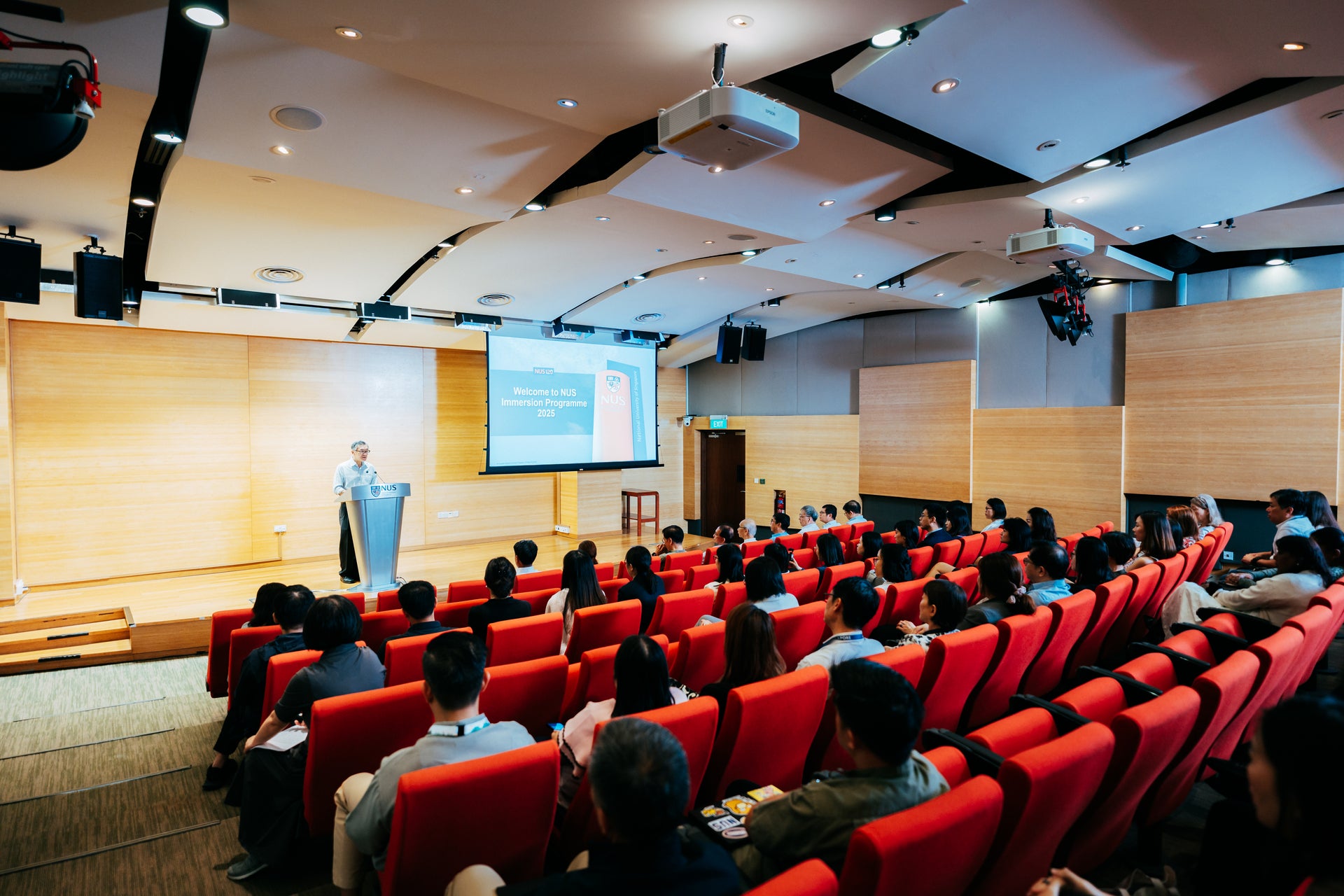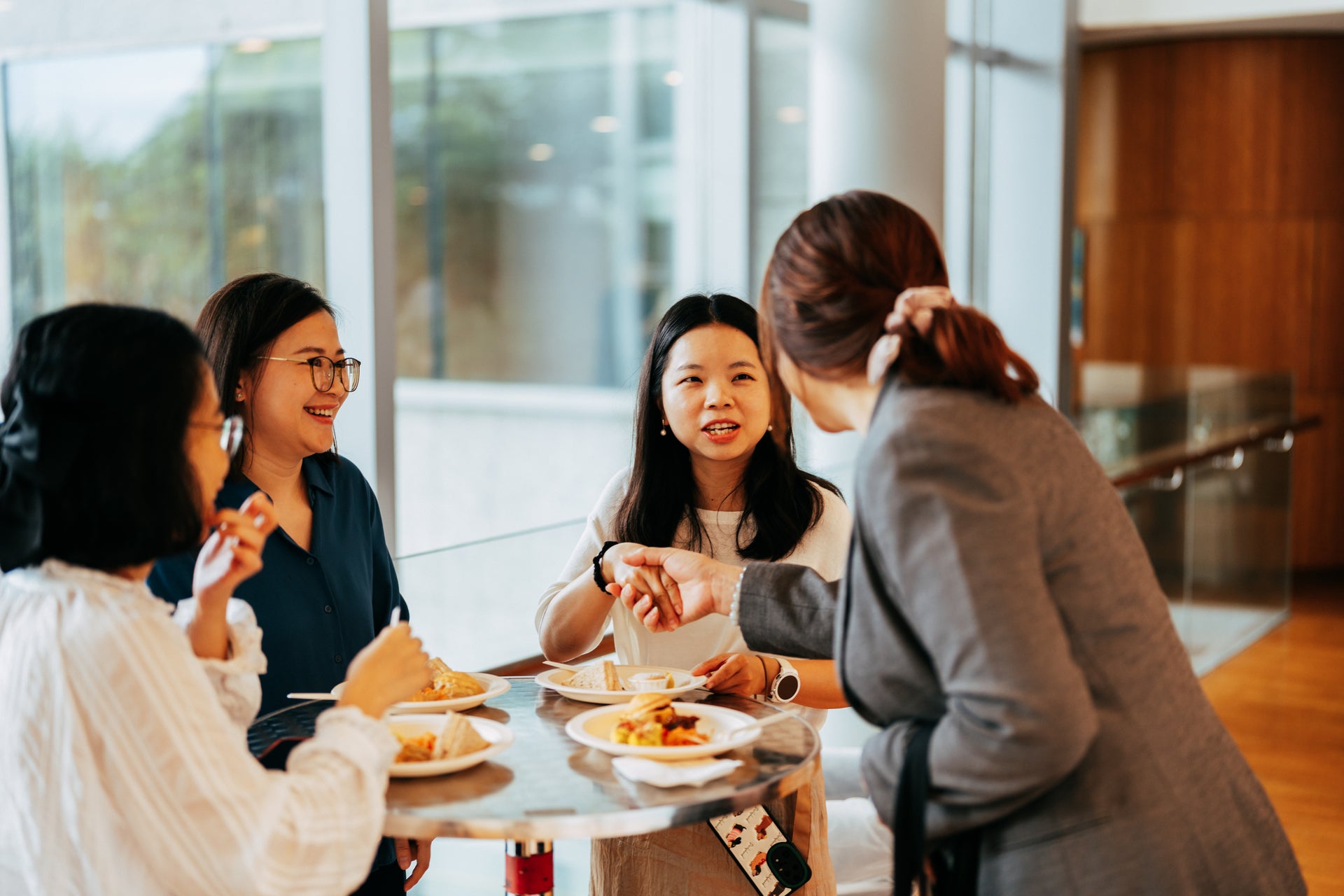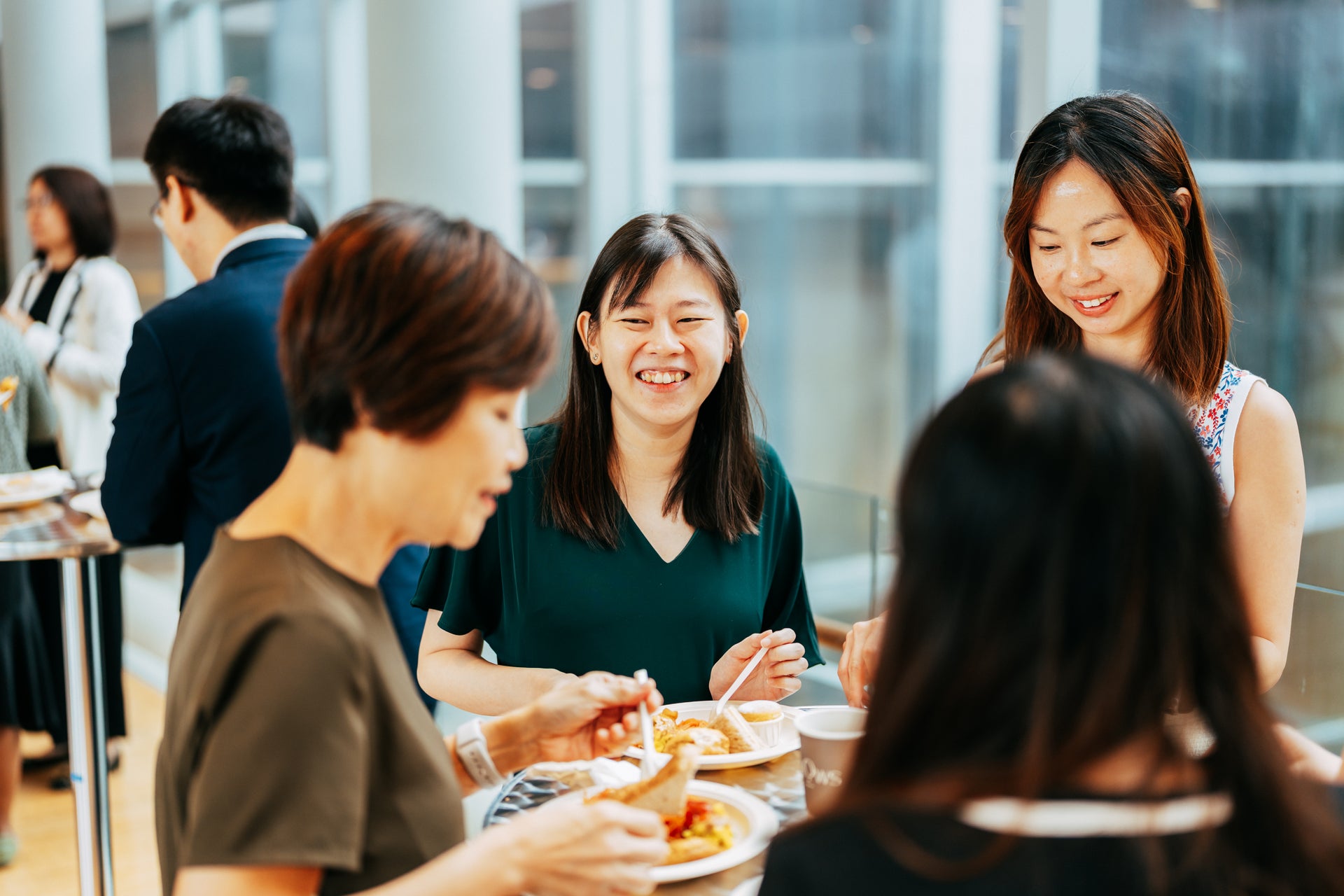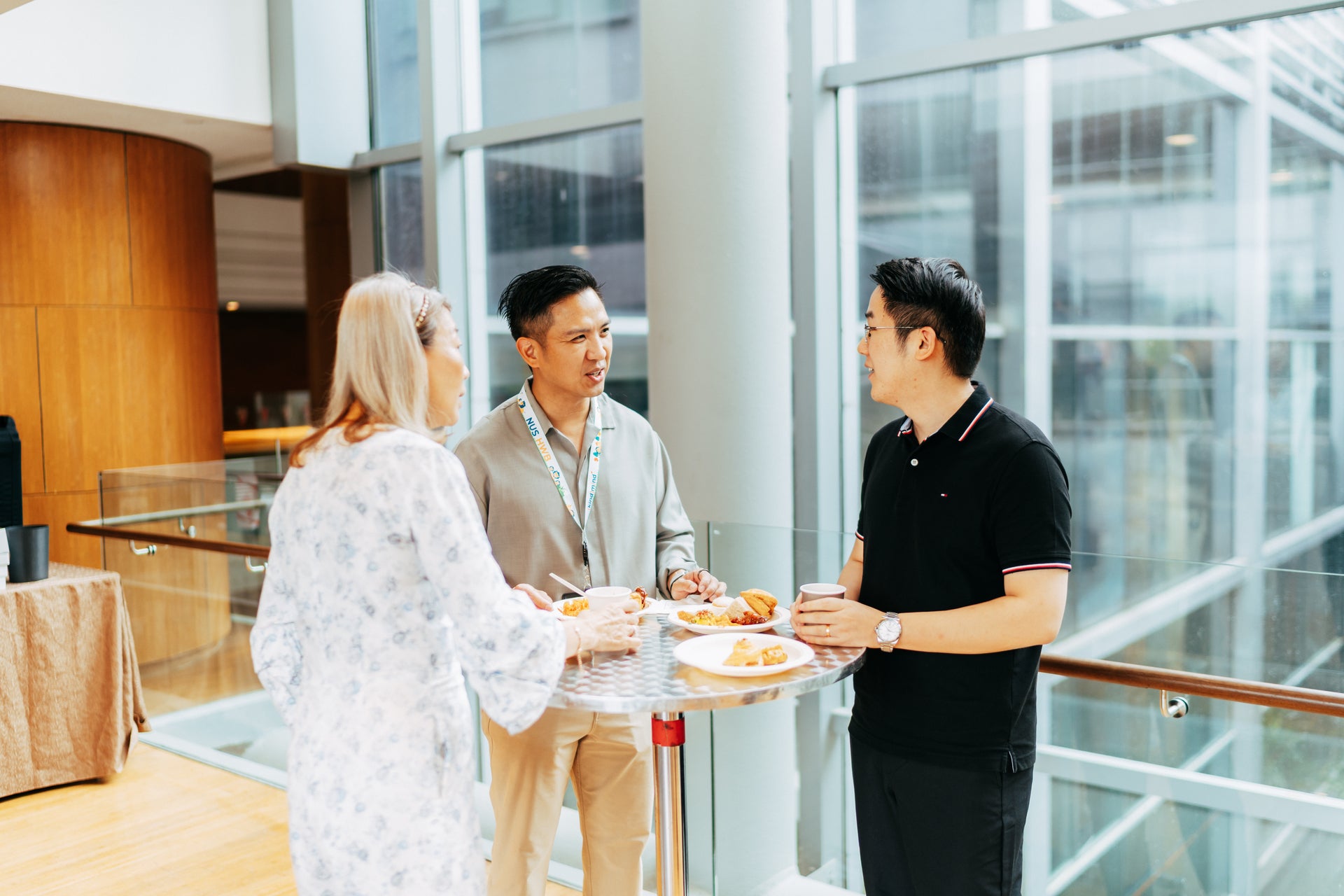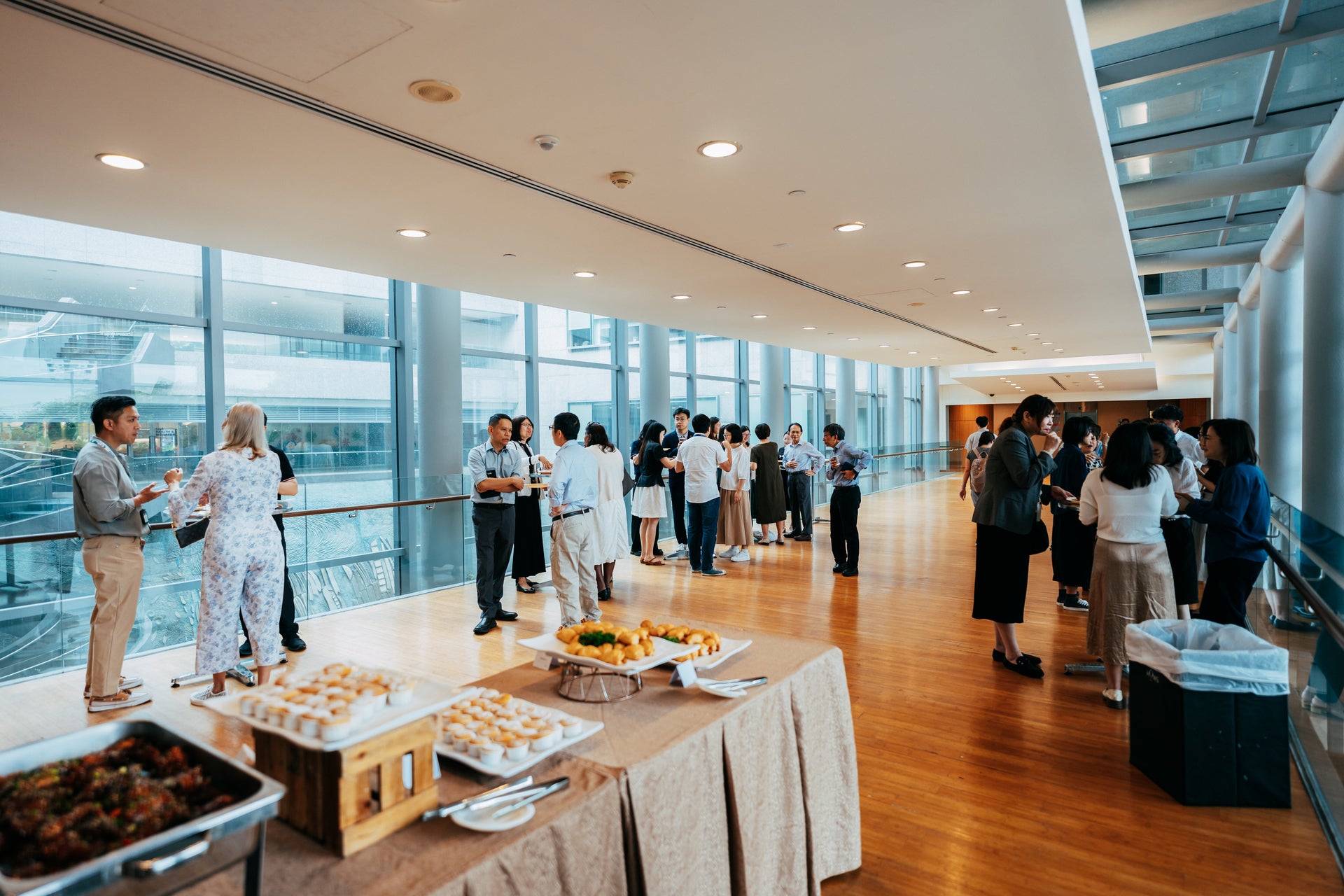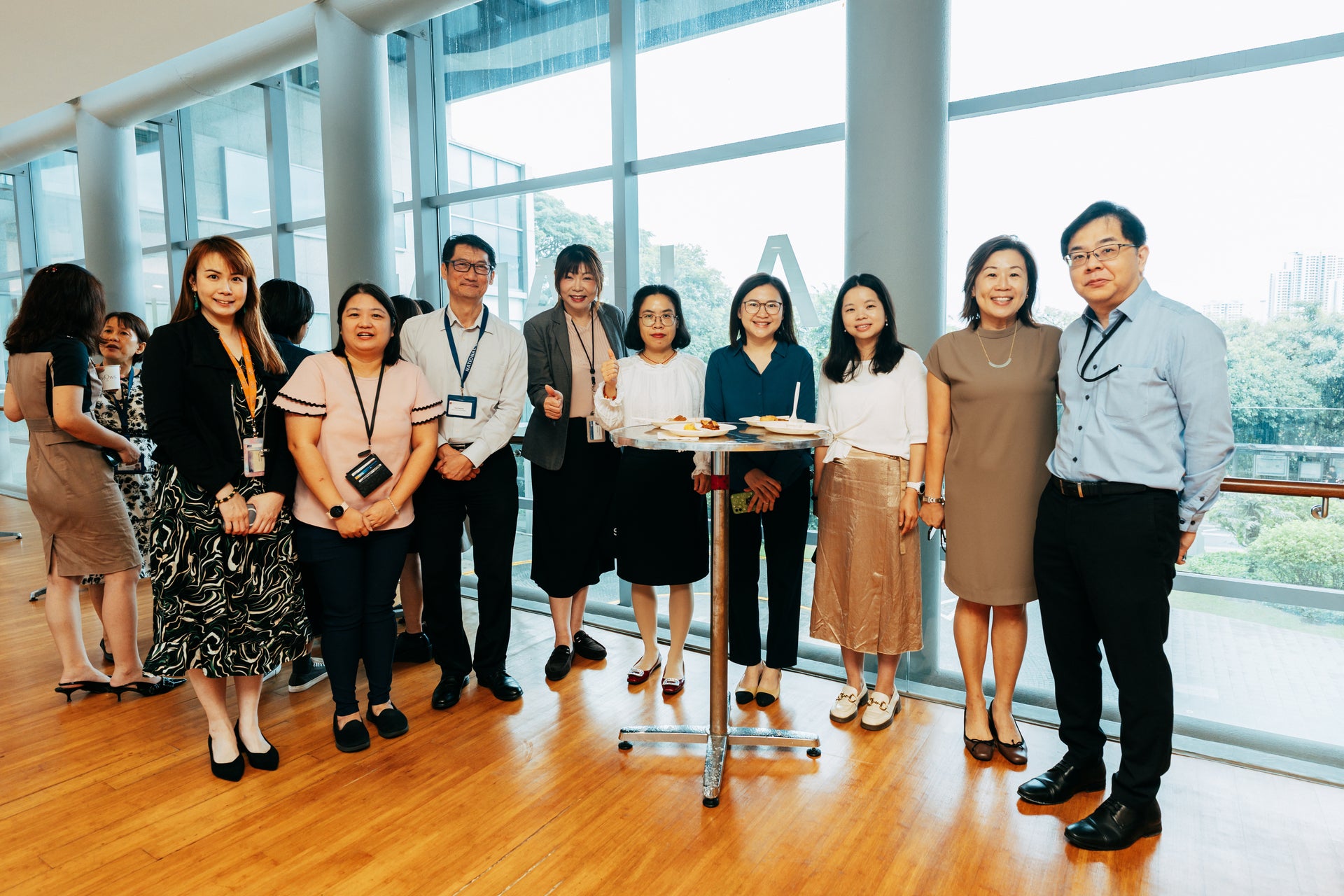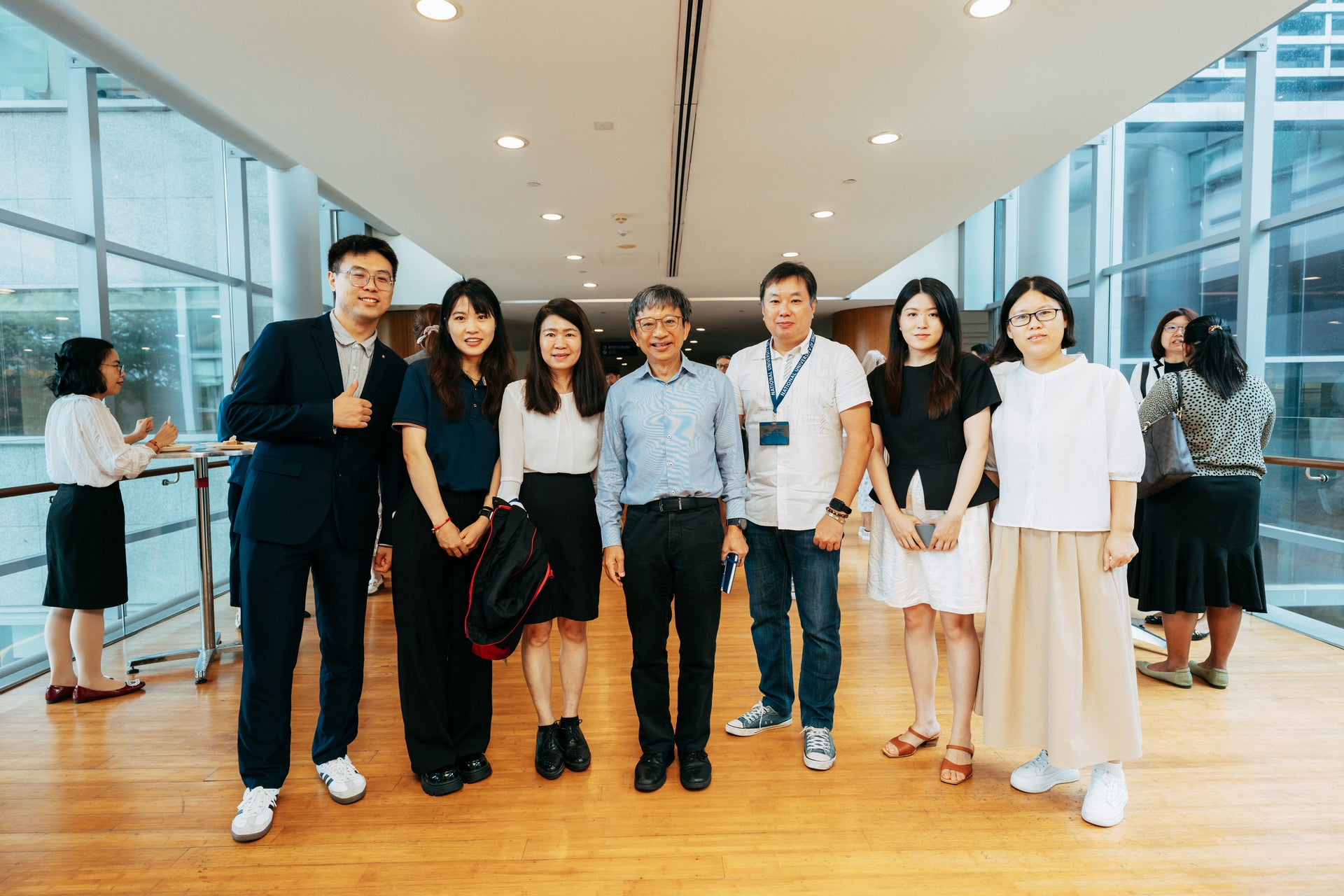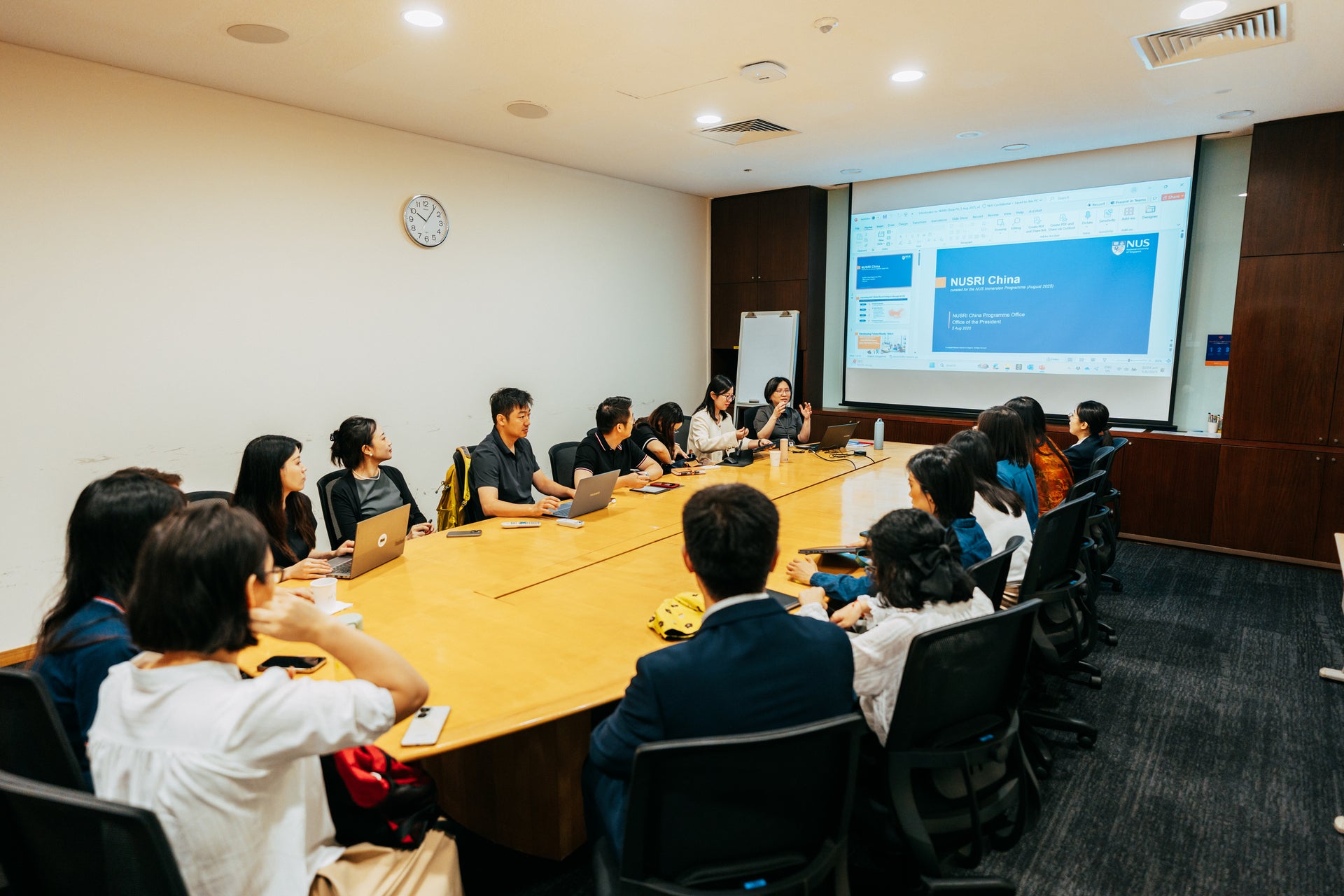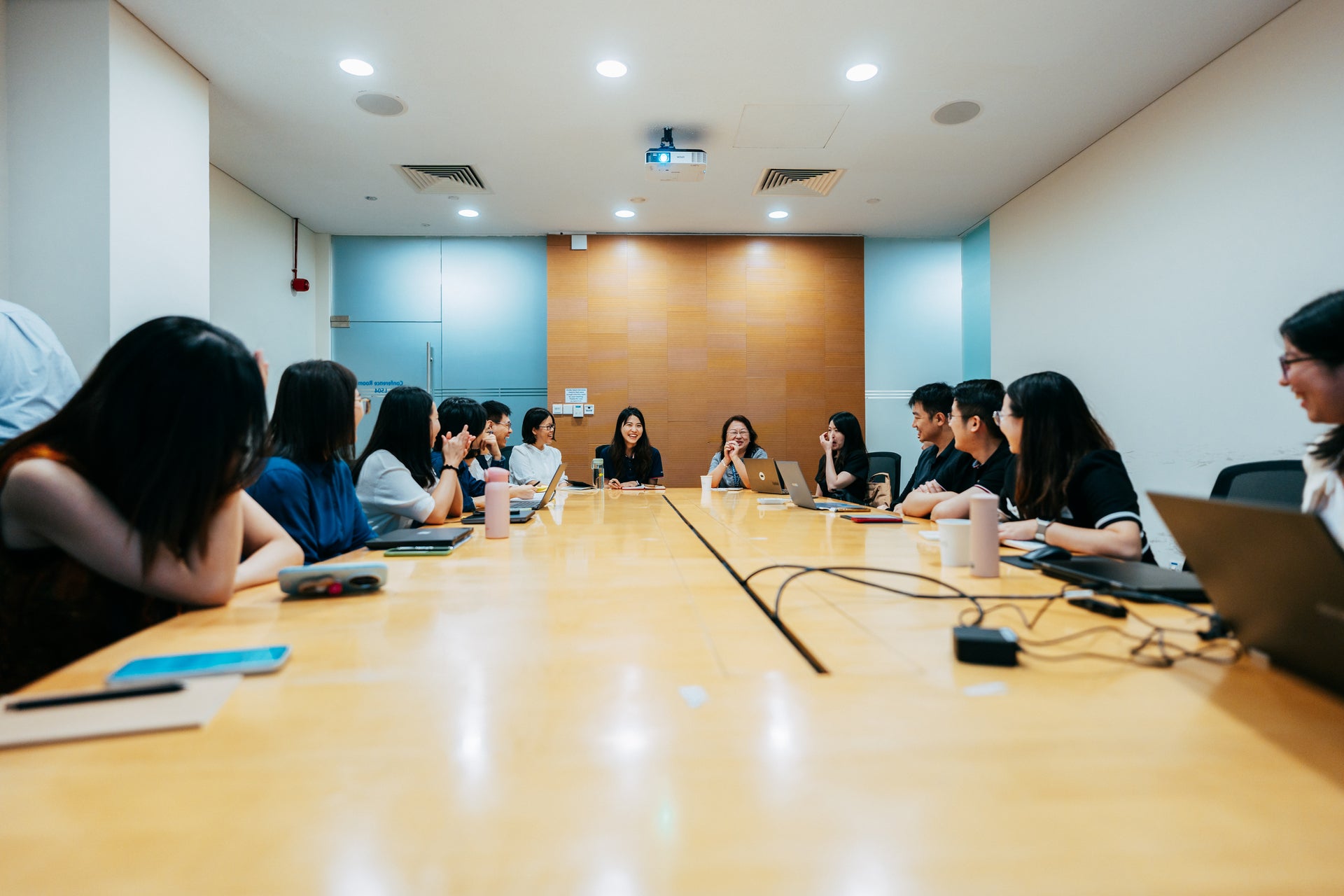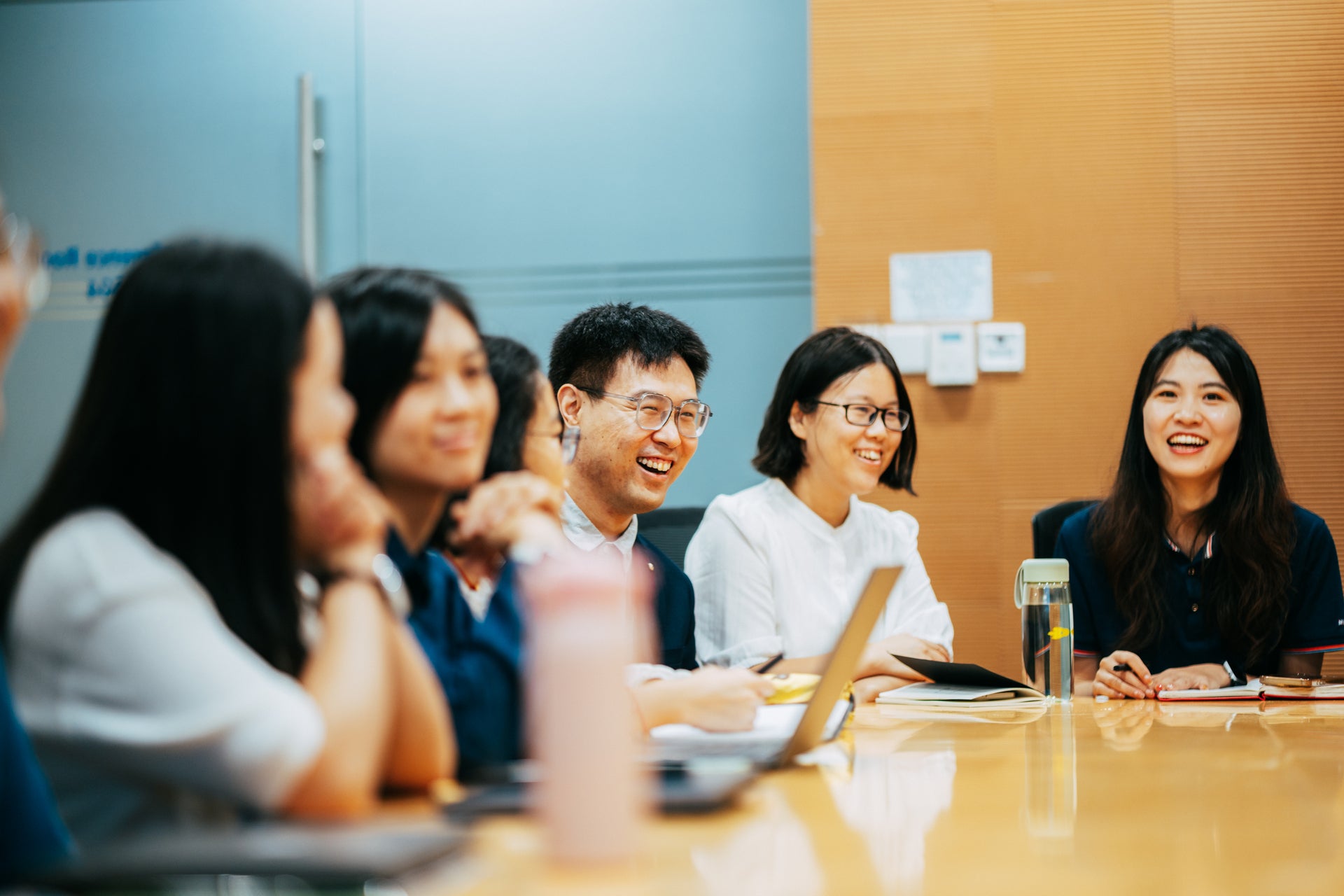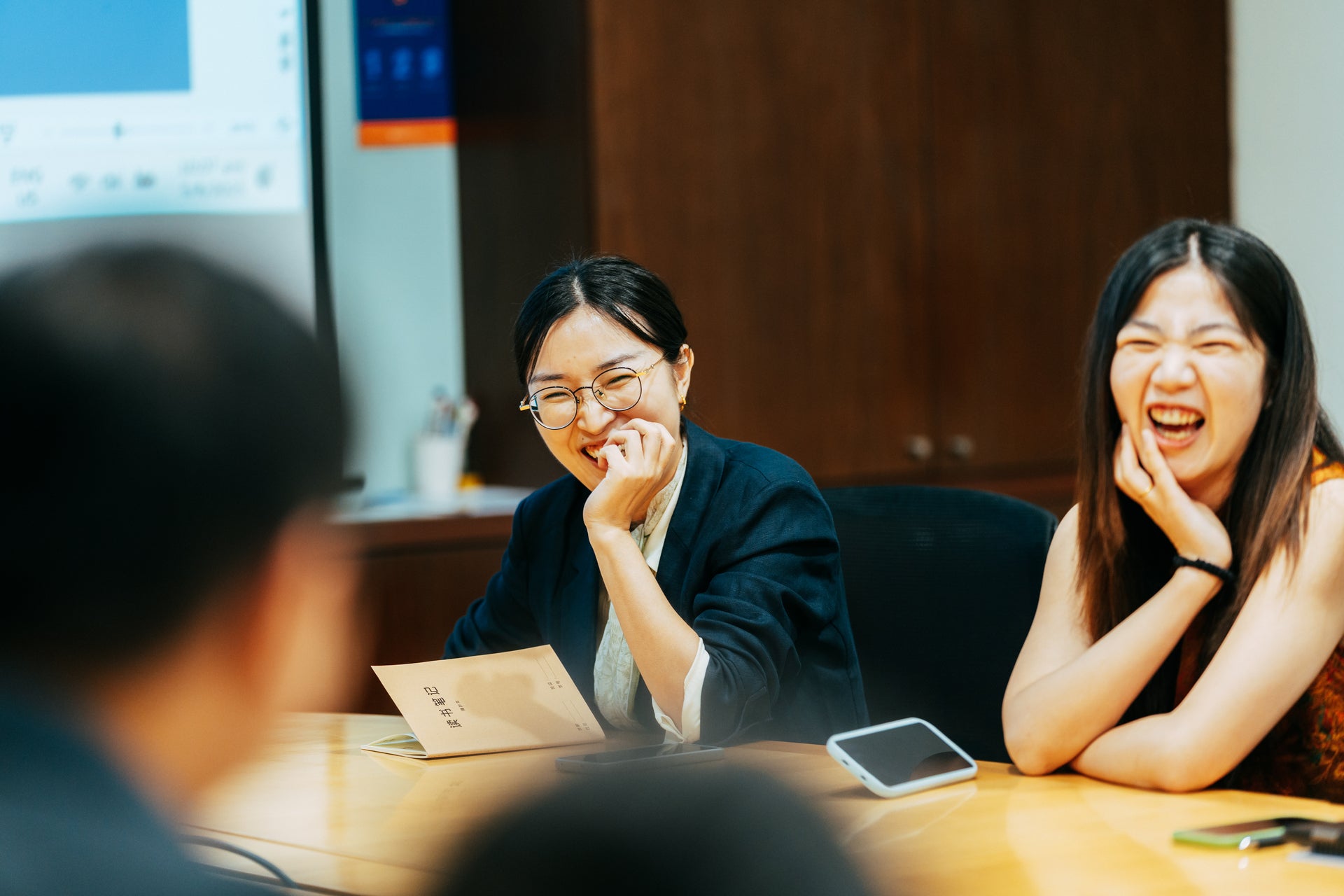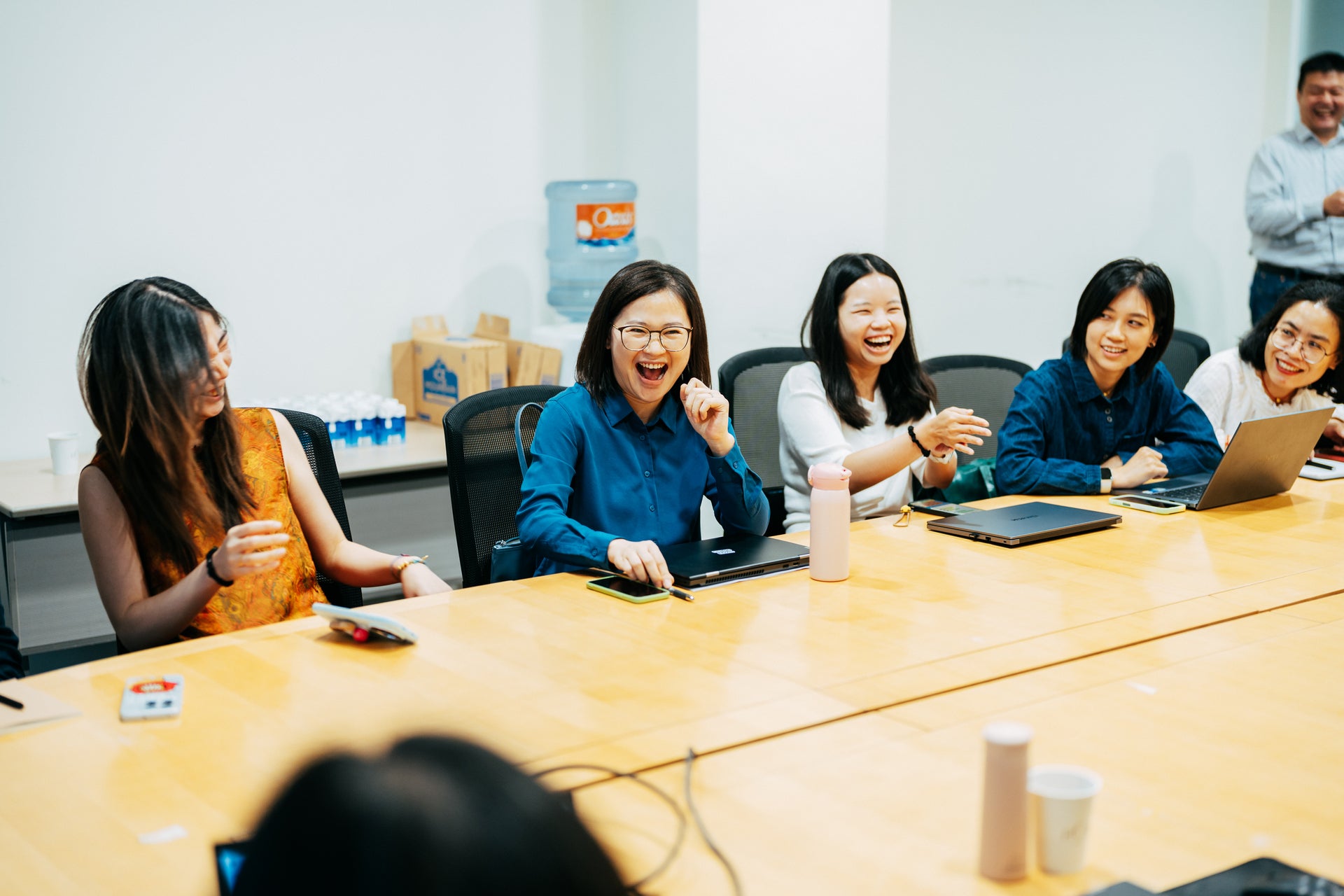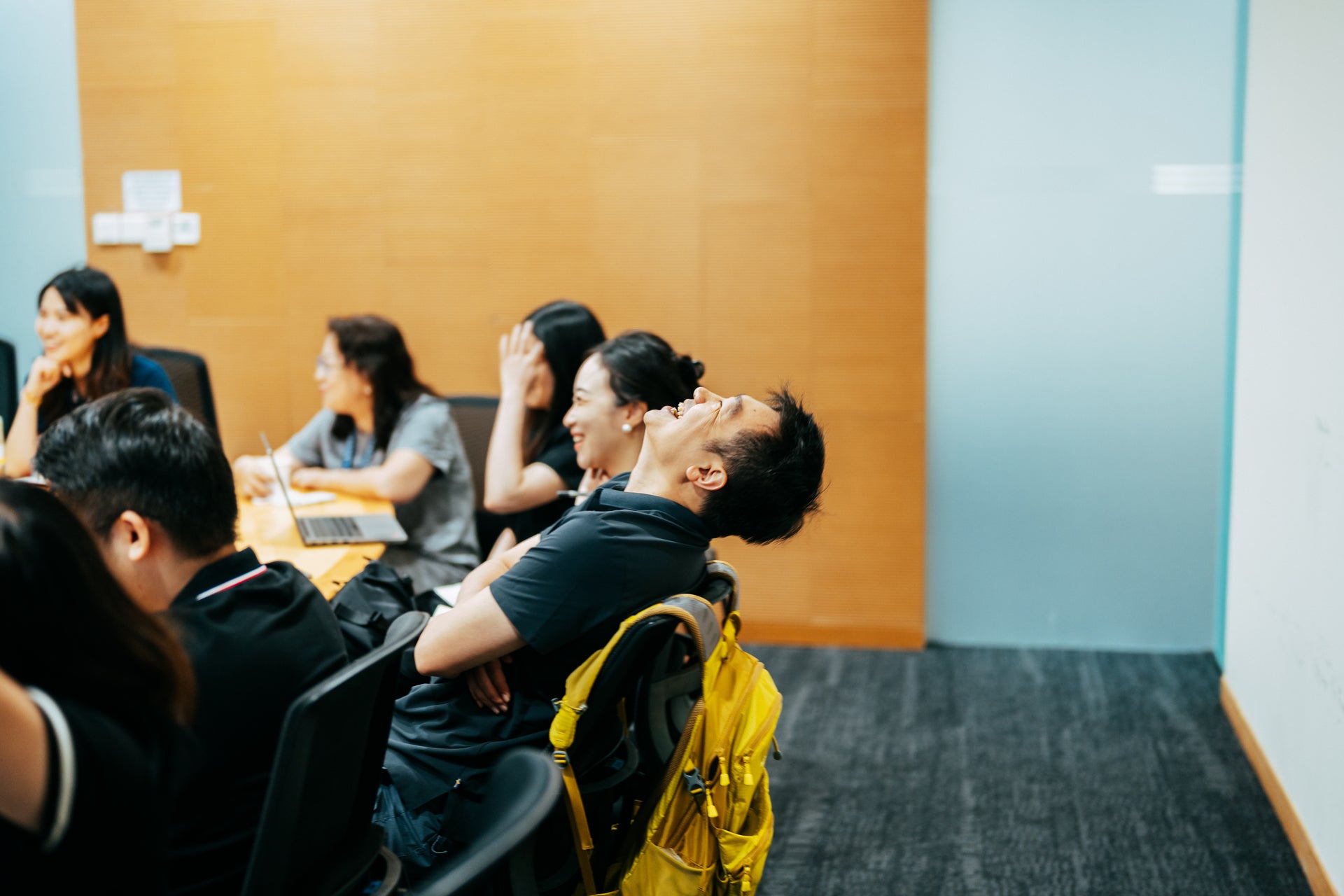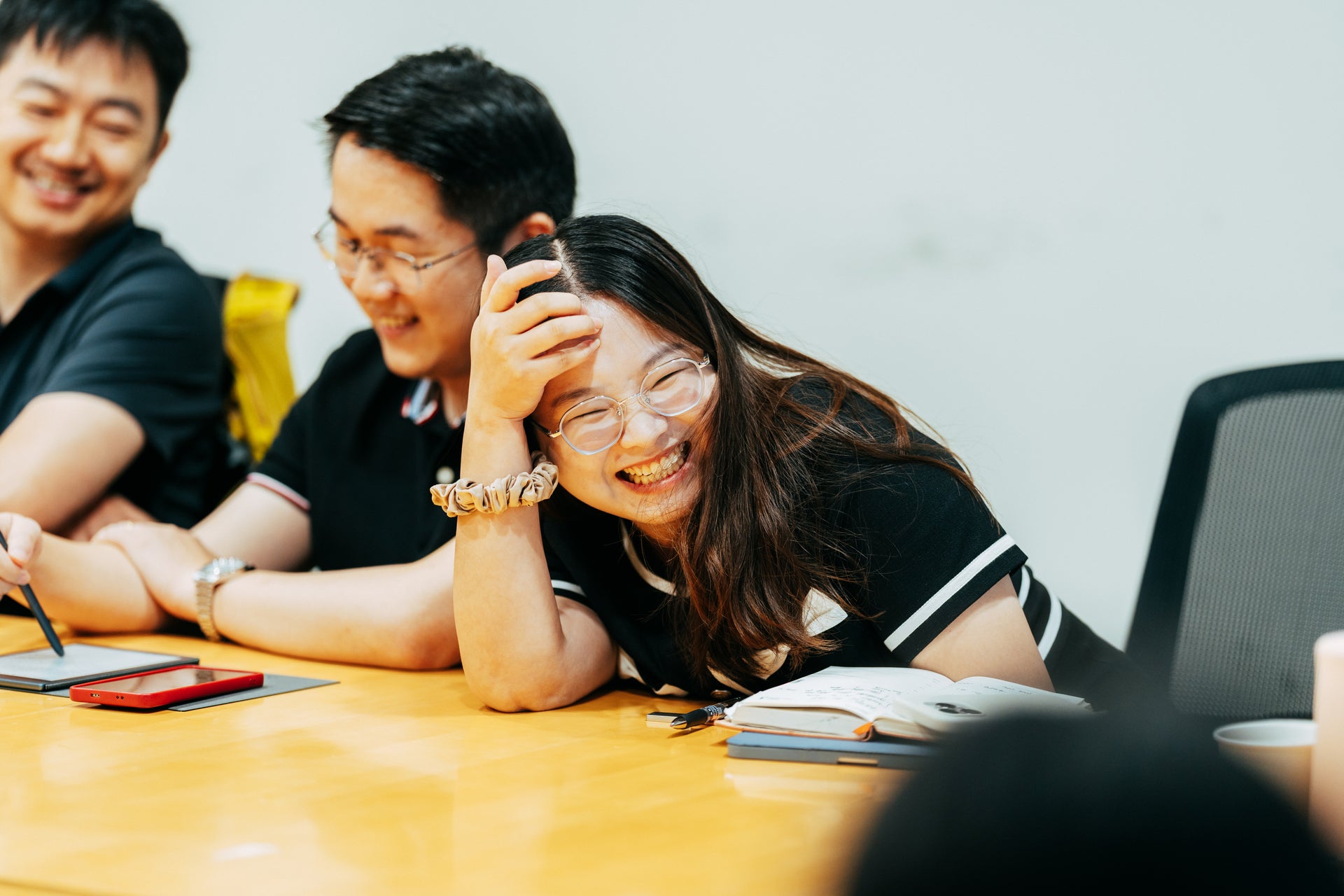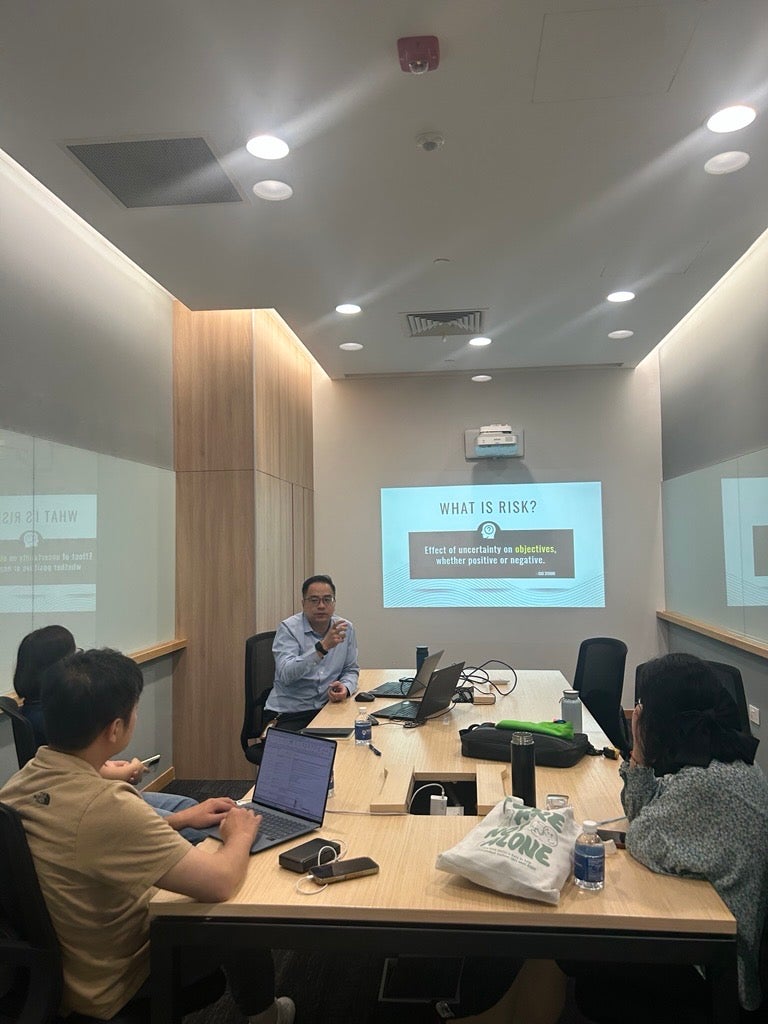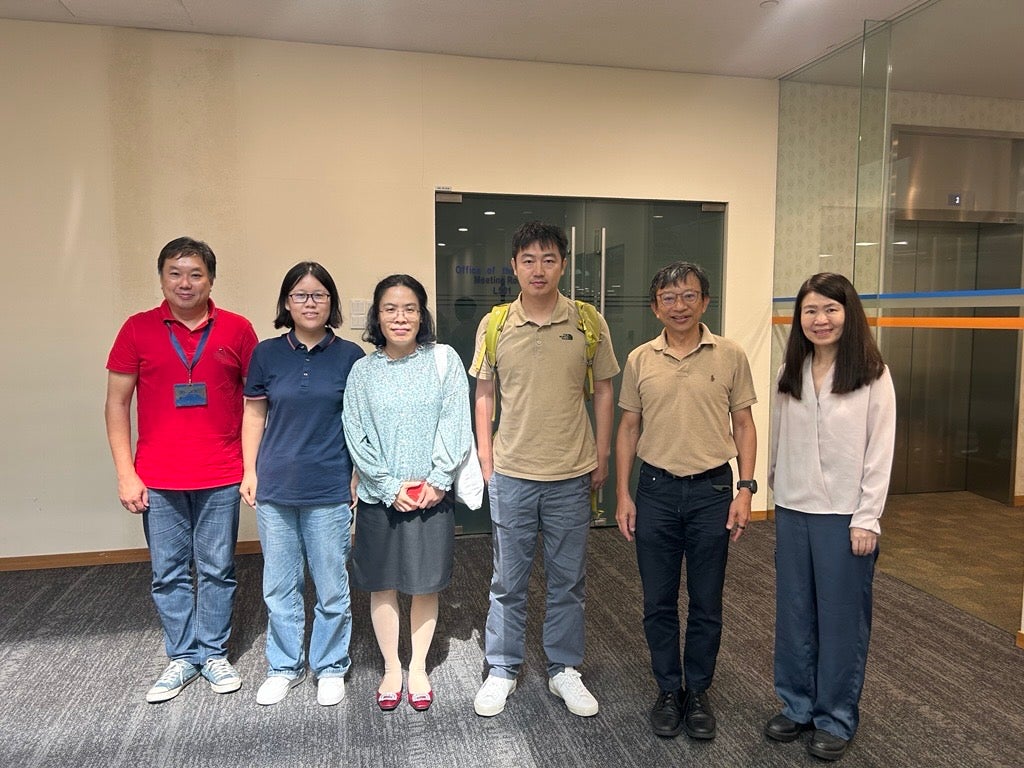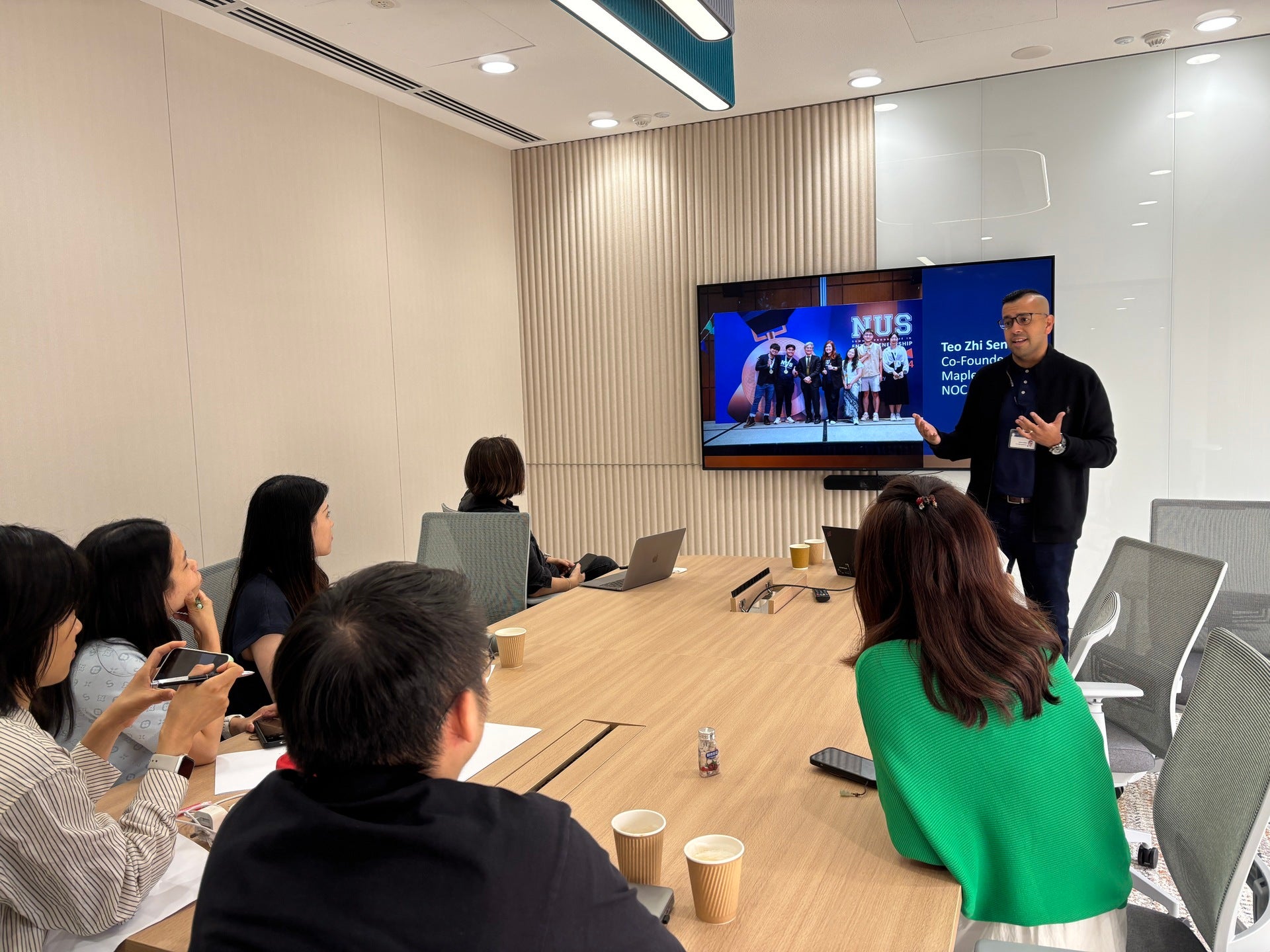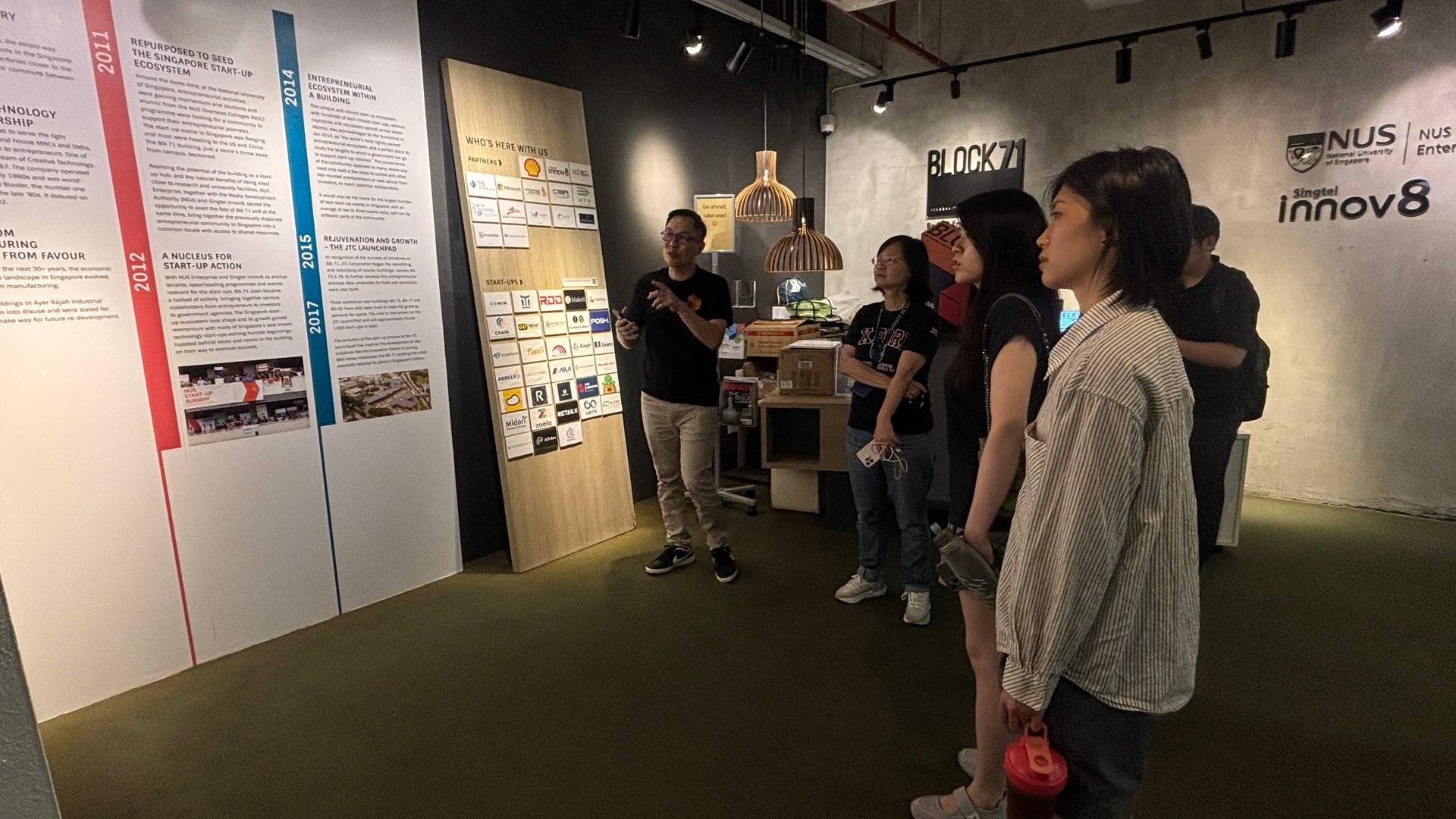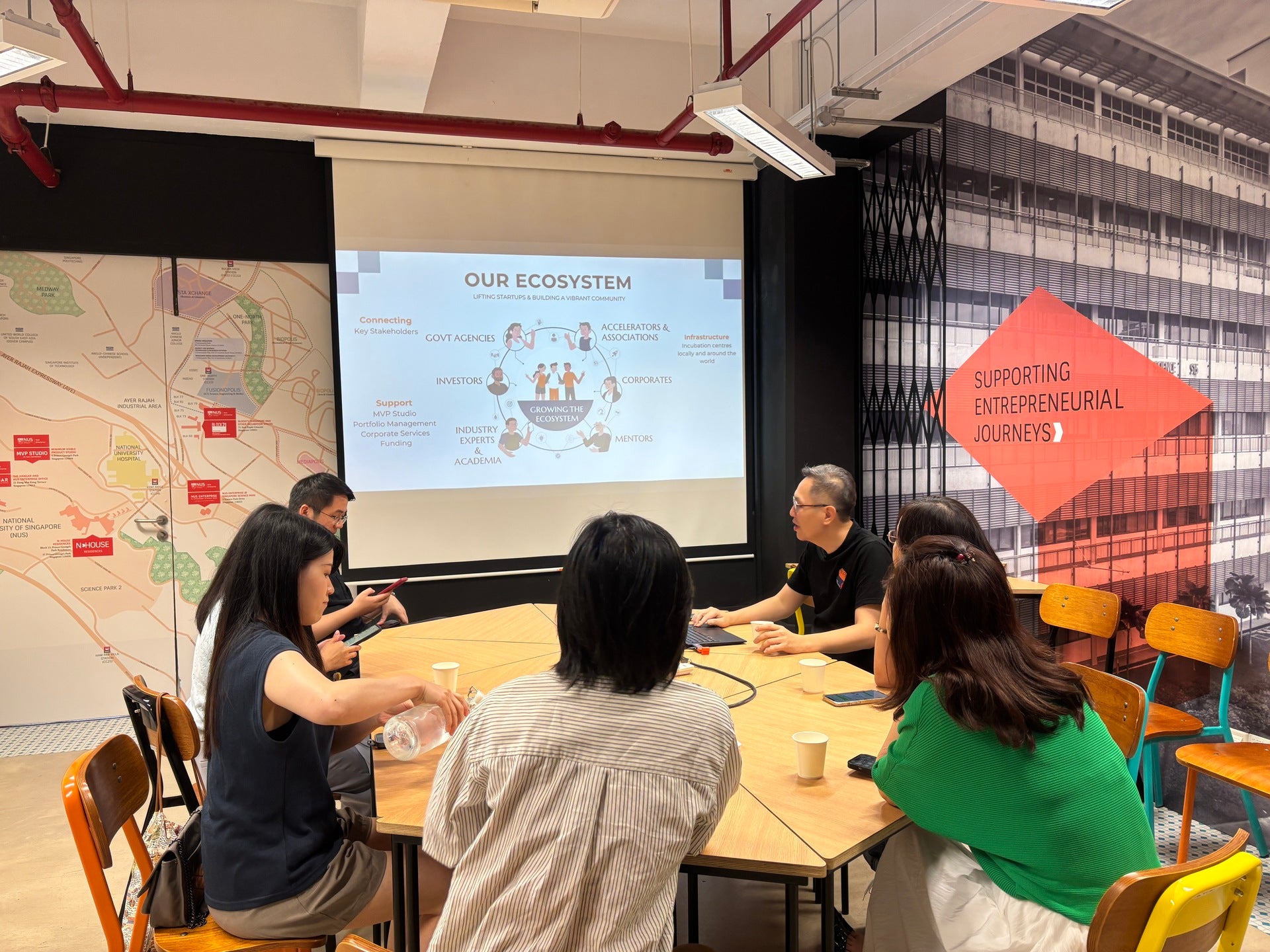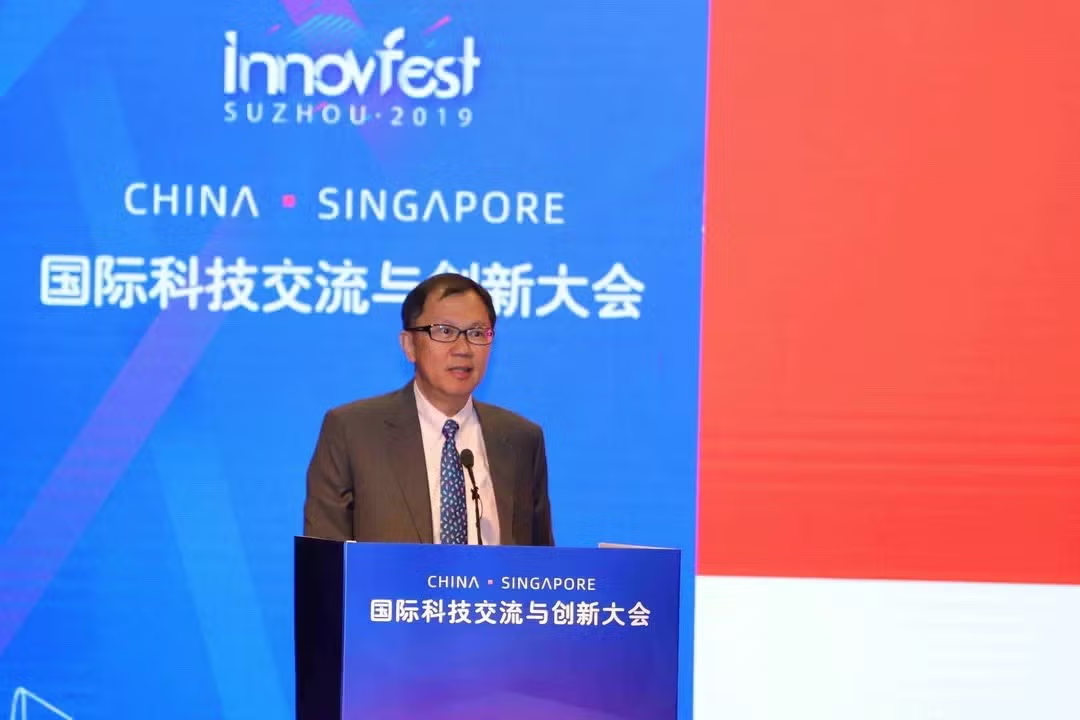
Innovfest Suzhou 2019
Suzhou, 25 September 2019
When colleagues from NUSRI China gathered in Singapore from 5 to 14 August 2025, they were welcomed as members of the extended NUS family. For eight days, the inaugural NUS Immersion Programme gave them the opportunity to learn about the University’s culture and operations, while connecting with counterparts across the campus.
The programme, coordinated by the NUSRI China Programme Office in collaboration with 14 NUS departments, drew 15 participants from NUS (Suzhou) Research Institute (NUSRI Suzhou), NUS (Chongqing) Research Institute (NUSRI Chongqing) and NUS Guangzhou Research Translation and Innovation Institute (NUS GRTII).
It began with a three-day Core Immersion Programme that gave participants an overall ‘taste’ of the University. This was followed by four Specialised Immersion Programmes — Research Administration, Enterprise, Education, and Administration and Operations — where smaller groups shadowed their NUS counterparts, observed processes first-hand and exchanged experiences relevant to their job roles.
The programme opened with a welcome reception at University Hall, where NUS President Professor Tan Eng Chye highlighted the vital role of NUSRI China staff as part of the University’s global mission. “As staff of the NUS research institutes, I hope you see the important role you play in helping NUS to advance our interests and impact in China. You are part of the larger NUS family,” he said.


NUS Immersion Programme participants arriving at University Hall for the opening segment in the auditorium.
Opening and welcome speech by Mr George Loh, Associate Vice President (Strategic Partnership), Office of the President.
NUS President, NUSRI China’s President Advisors and Directors at the opening segment.
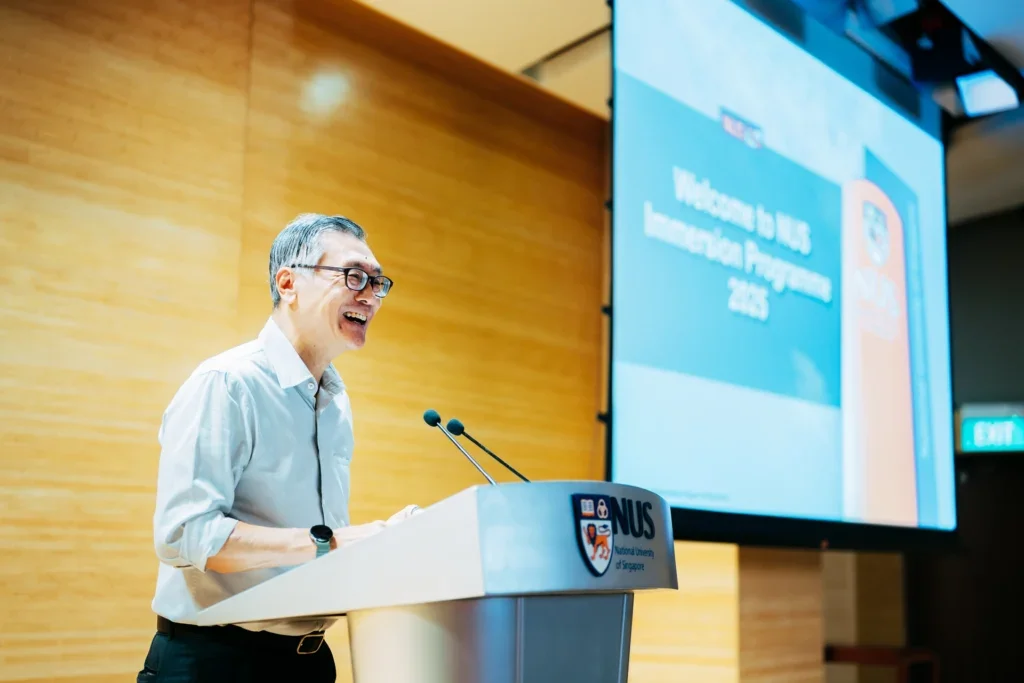
Welcome address by Prof Tan Eng Chye, NUS President and Chairman of NUSRI China Management Committee.
Stepping into the NUS way of life
The Core segment introduced participants to NUS’ culture, values and strategic direction, and offered an inside look at the University’s approaches to innovation, sustainability and workplace wellbeing. Sessions by the Office of Human Resources and Office of University Communications offered insights into various aspects from workplace practices to cyber security to communication standards, while a campus tour and museum visit gave them a feel of NUS’ academic and cultural environment.
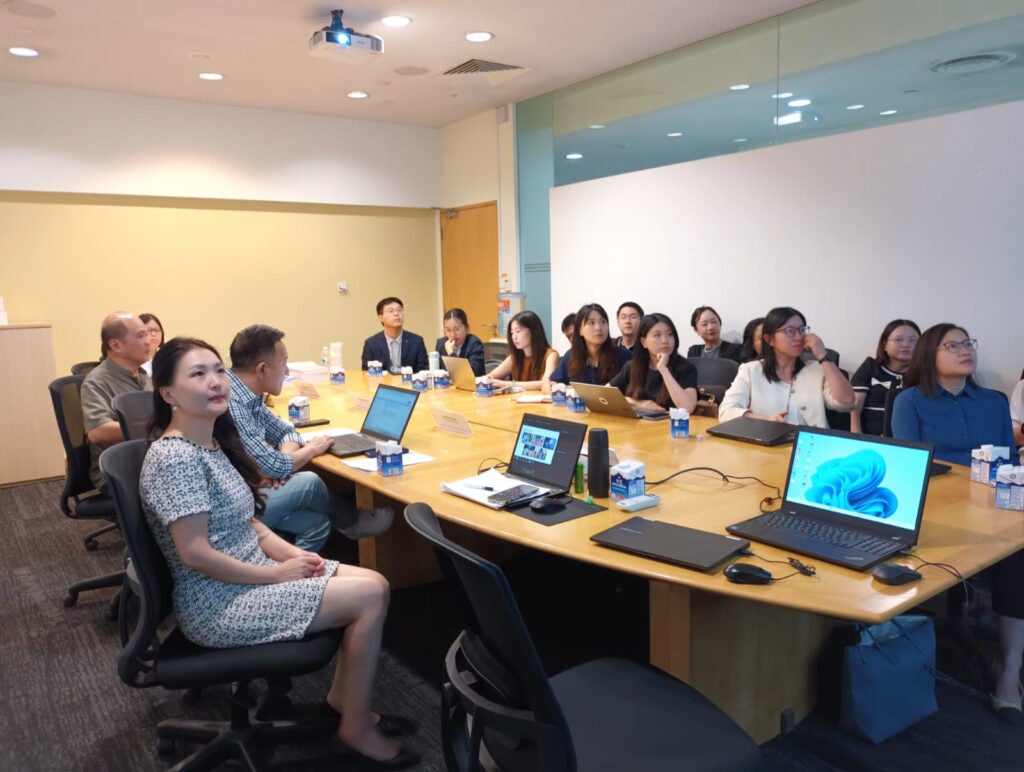
Sharing session with the Office of University Communications.
“All the sessions were truly wonderful. They gave me a comprehensive understanding of NUS and will be very helpful for my work,” said Meng Xueping from Research Office, NUSRI Chongqing. Wang Ting from HR and Administration Office, NUSRI Chongqing also shared: “The orientation activities helped me connect with colleagues from different departments and understand the various systems of NUS.”
Behind every discovery: safety, compliance and trust
Those under the Research Administration track were given a close look at how NUS upholds safety, compliance and integrity in research. The Office of Risk Management and Compliance guided them through safety and health systems, laboratory processes and operational risk management. Colleagues from the Office of the Deputy President (Research and Technology) and the Office of Legal Affairs then shed light on how research contracts are managed with rigour and clarity. The attachment with the NUS Graduate School rounded out the experience, demonstrating how the University supports graduate students alongside its faculties and schools.

Attachment with NUS Office of Risk Management and Compliance.
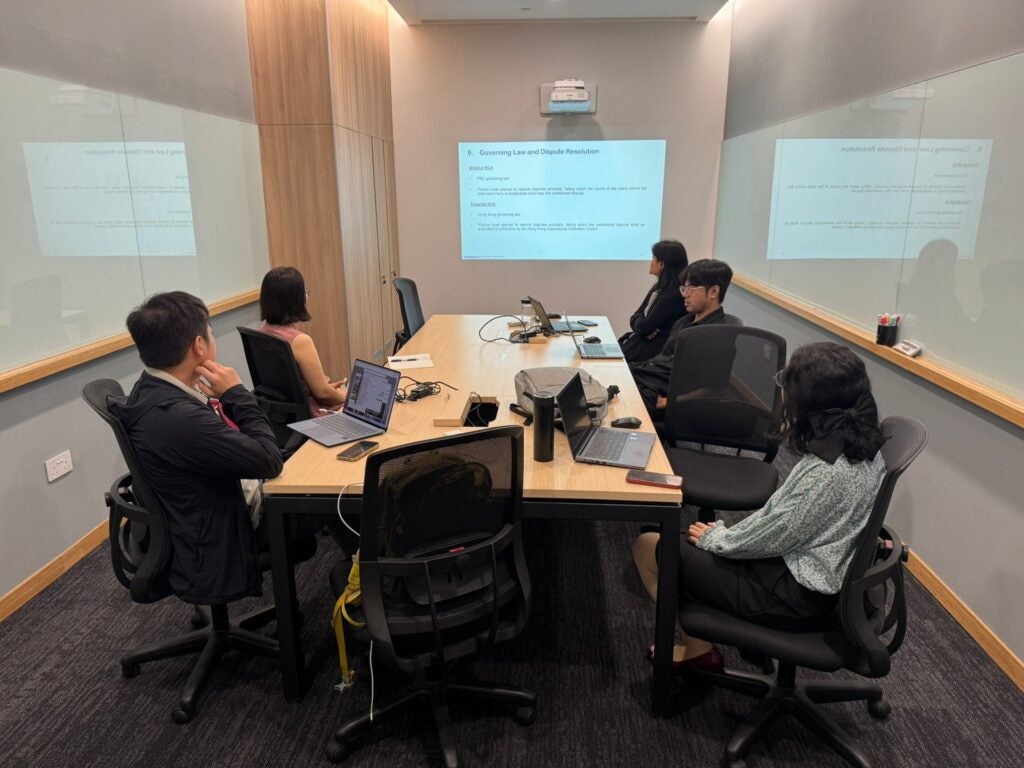
Attachment with NUS Office of the Deputy President (Research and Technology), and Office of Legal Affairs.
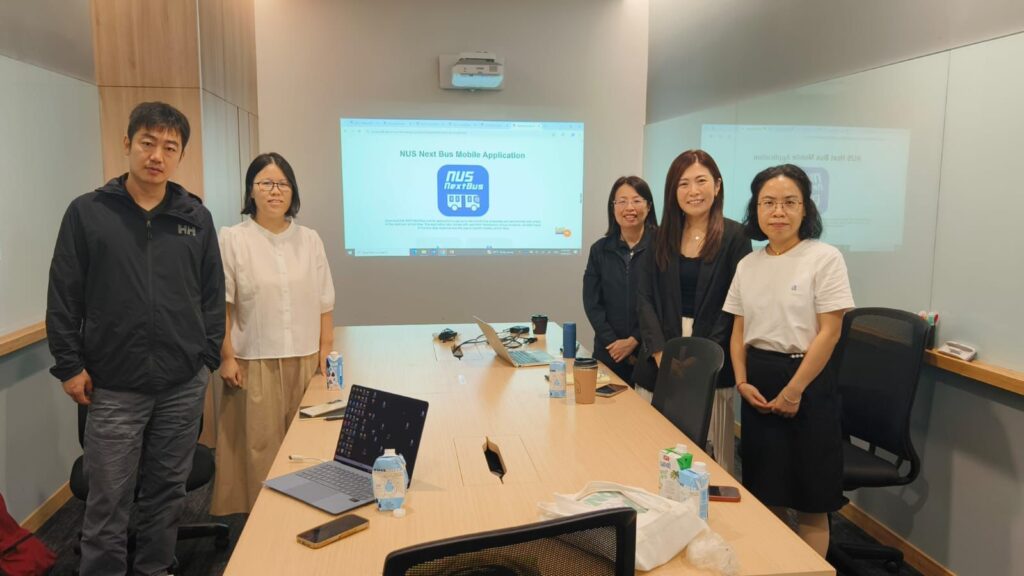
Attachment with NUS Graduate School.
A front-row seat to innovation and entrepreneurship
As for the group under the Enterprise track, a visit to NUS Enterprise was eye-opening. The sessions with the Graduate Research Innovation Programme (GRIP) and Technology Transfer and Innovation (TTI) teams and the BLOCK71 incubator showed how brilliant ideas are brought to life and translated from research to market.
“The day we spent with NUS Enterprise gave me a broad and clear view of how innovation works at NUS and in Singapore,” Lou Yini from Enterprise Office, NUS GRTII shared. “Through GRIP and TTI, I saw how entrepreneurship is fostered among both professors and students.”
For Lou, the highlight was discovering an NUS ecosystem buzzing with energy, where research, culture and entrepreneurship collide. “What I enjoyed most about the NUS Immersion Programme was the unique blend of academic exploration and cultural connection,” said Lou. “I was inspired by the rigour of NUS’ academic environment, the warmth of its people and the spirit of entrepreneurship here.”
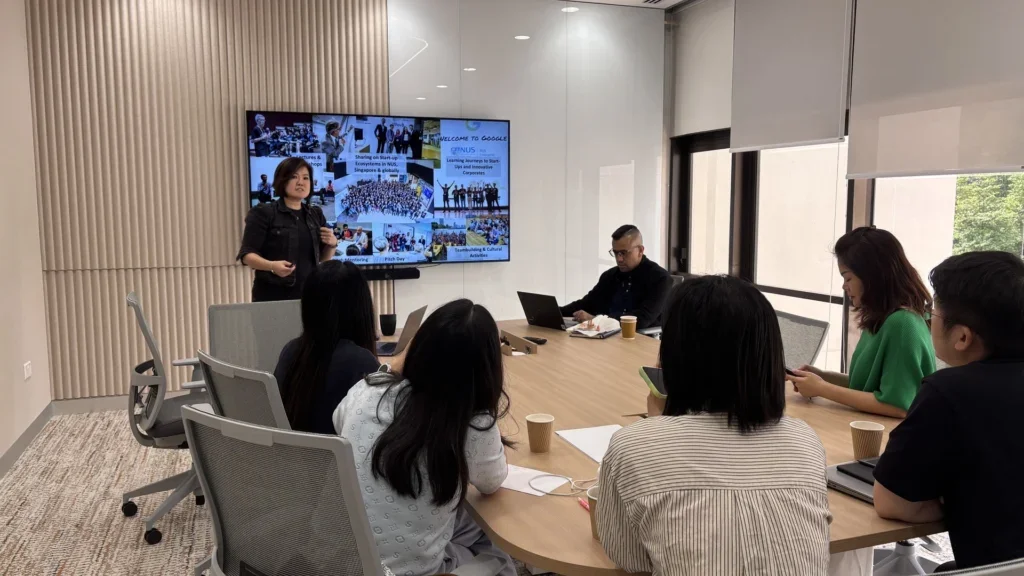
Sharing session with NUS Enterprise Academy team.

Participants enjoyed a tour of BLOCK71 incubation centres.
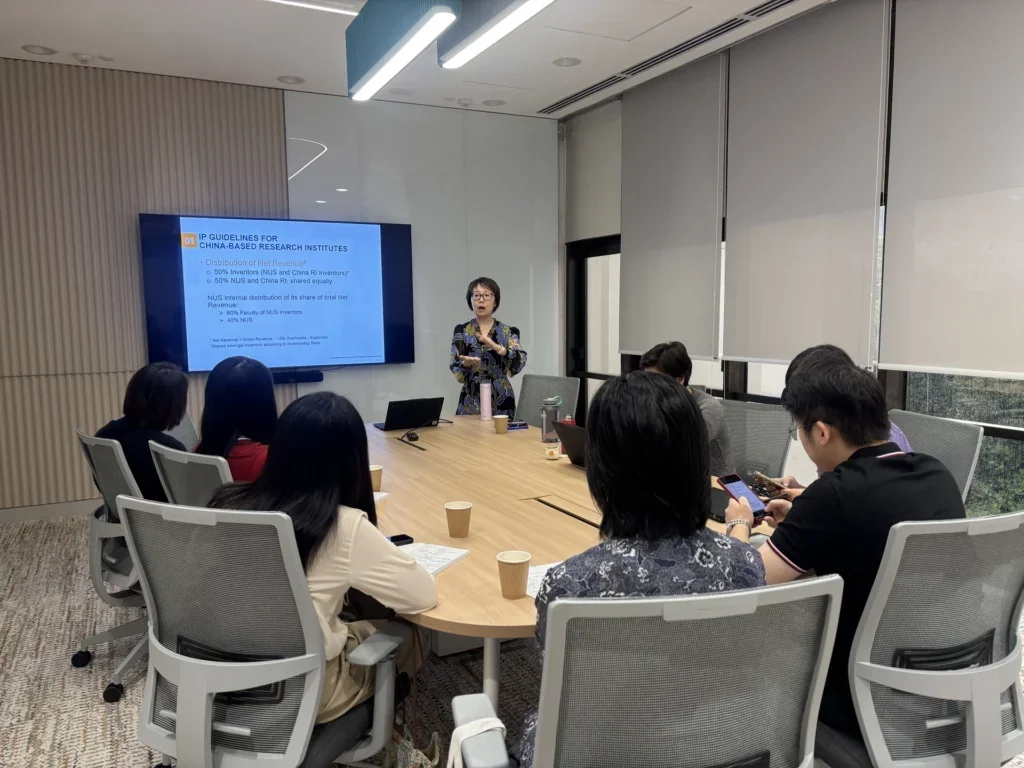
Sharing session with Technology Transfer and Innovation team.
Seeing student life through fresh lens
Staff who joined the Education track learned how NUS supports students in their academic and personal journeys. Through sessions held by the Office of Student Affairs (Student Wellness) and University Counselling Services, they observed how the University addresses student wellbeing in a structured and supportive way.
“I gained valuable insights into the psychological issues that students often encounter,” said Chai Yingtao from Education Office, NUSRI Chongqing. “It gave me a clearer understanding of how I can support students’ mental health needs, and I also learned about the resources that NUS provides to help them navigate these challenges.”
On the other hand, engagements with the Centre for Future-Ready Graduates highlighted career-preparatory initiatives and employer engagement strategies, broadening their perspectives on how universities can prepare students for life beyond graduation.
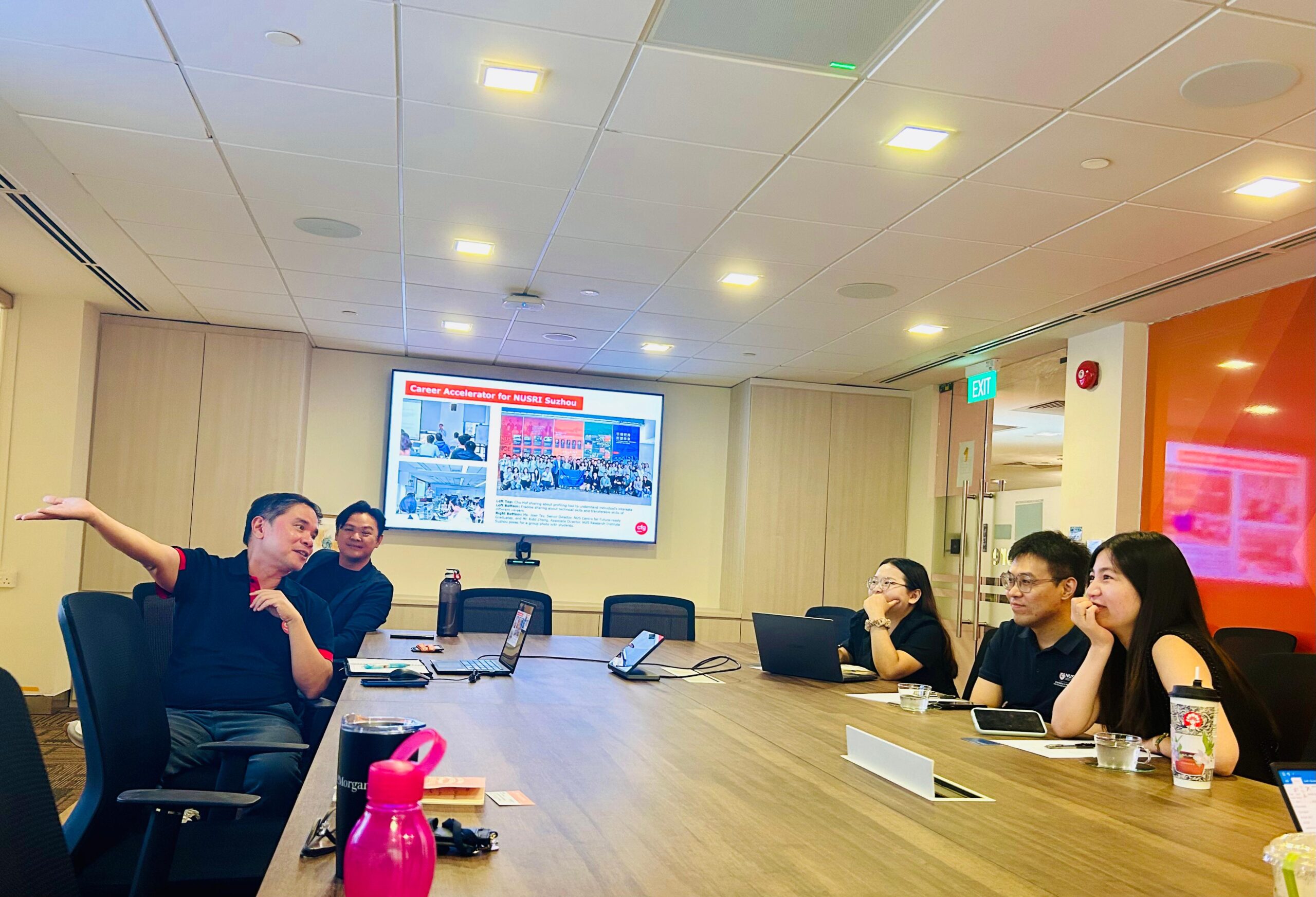
Attachment with NUS Centre for Future-Ready Graduates.
Lessons from the engine room of a university
The Administration and Operations track allowed participants to peer into the behind-the-scenes functions that keep the University running seamlessly. Attachments with the finance, procurement, internal audit, and health and wellbeing teams provided hands-on exposure to processes ranging from finance system controls to governance and health and wellbeing.
Kong Jinjing from HR and Administration Office, NUSRI Suzhou noted: “This Immersion Programme deepened my understanding of NUS’ work culture and processes. I gained practical insights from the finance and audit teams, and built valuable connections with colleagues at NUS and other research institutes for future collaboration.”

Attachment with NUS Health and Wellbeing Unit.
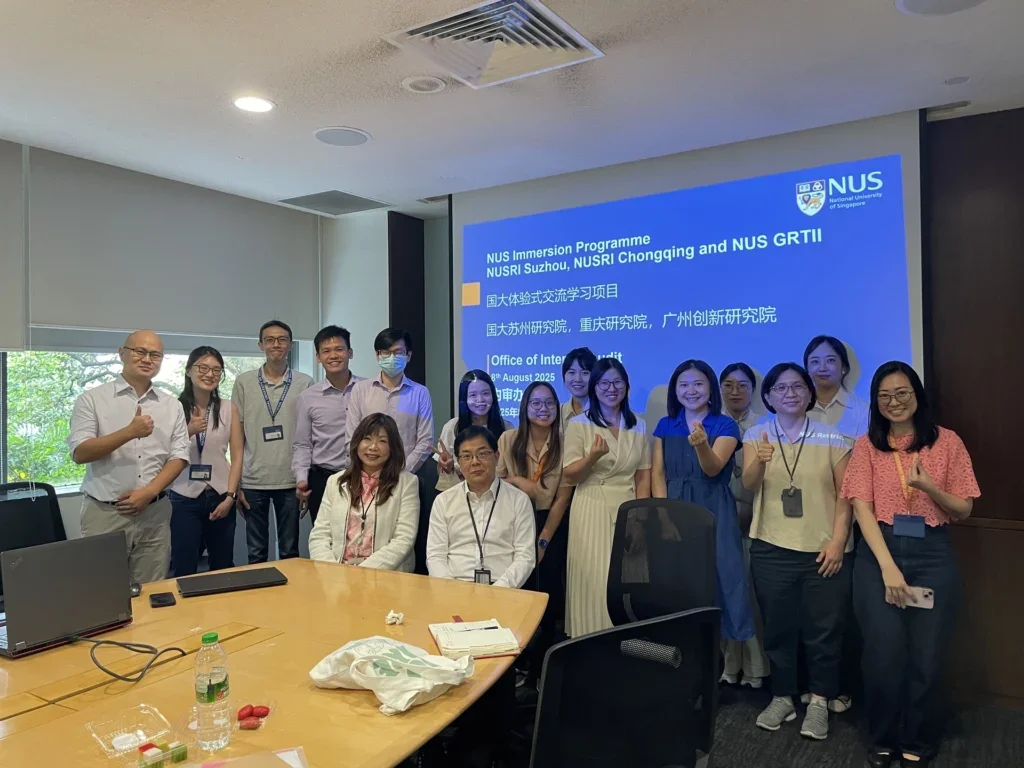
Attachment with NUS Office of Internal Audit.
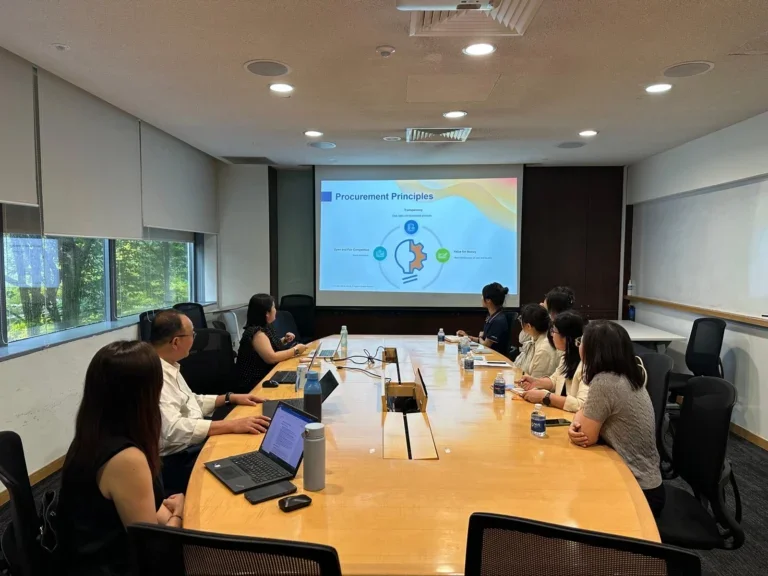
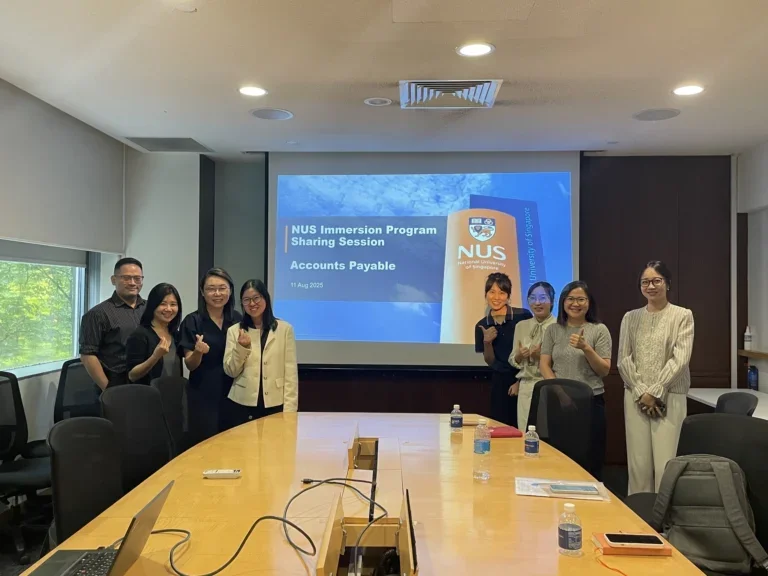
Attachment with NUS Central Procurement Office, with a related segment covered by the accounts payable team in NUS Office of Finance.
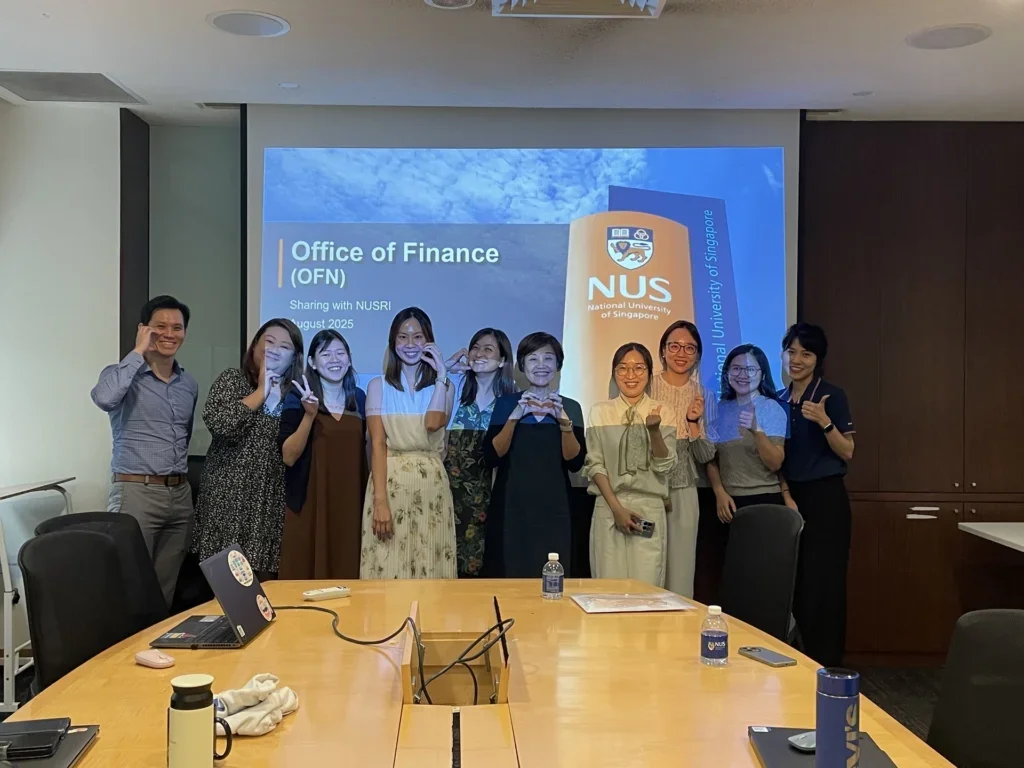
Attachment with NUS Office of Finance.
What struck participants just as much as the content was the professionalism on display. “The competence and dedication of the trainers left a strong impression. Their ability to combine operational mastery with strategic thinking sets an exemplary model for us to follow,” reflected Kong.
Wang from NUSRI Chongqing also added: “Thanks to the organisers and speakers, I came to know NUS better and met more colleagues from different departments. It was very helpful for my work and a very memorable experience.”
Cross-cultural bonds that carry work further
Indeed, the NUS Immersion Programme was not only about systems and processes. It was also about meeting colleagues, building relationships and discovering shared purpose. Participants repeatedly highlighted the value of connecting with fellow colleagues from across Suzhou, Chongqing, Guangzhou and Singapore.
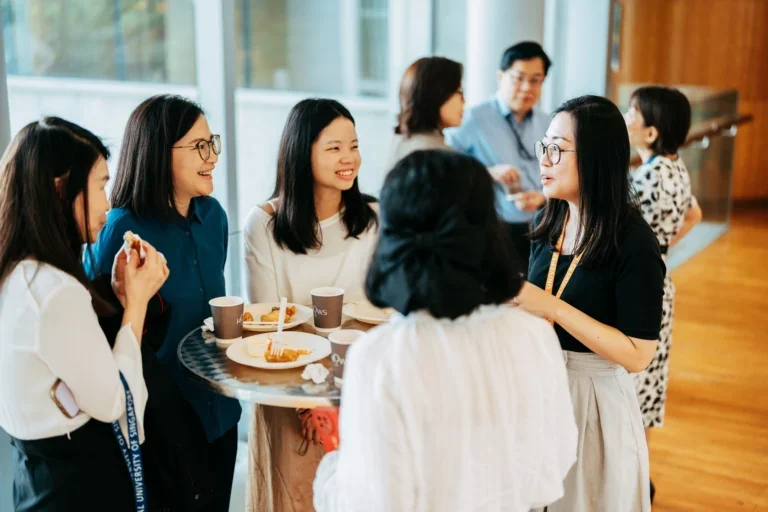
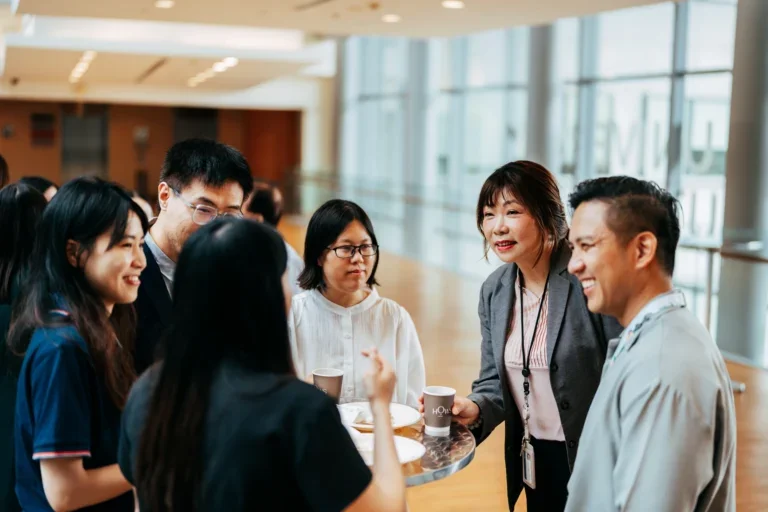
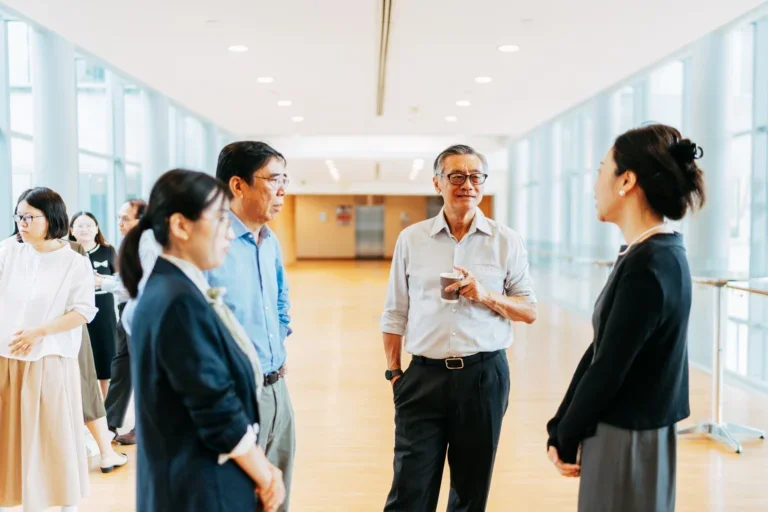
NUS Immersion Programme participants interacting with colleagues from the NUS hosting departments during the breakfast reception at University Hall Linkbridge on the opening day.
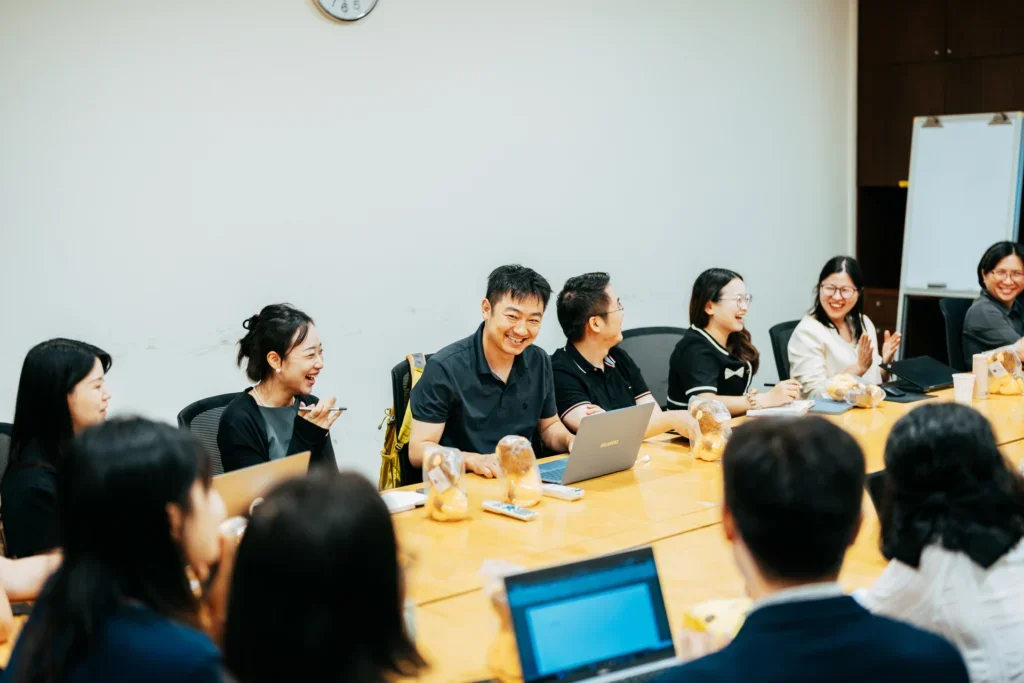
Meet-and-greet session by NUSRI China Programme Office after the breakfast reception on the opening day.
“I appreciated this opportunity to engage with colleagues from other NUSRIs and with the different departments of NUS,” said Wang Lei from Office of the Director, NUSRI Suzhou. “They shared a lot of useful information and work experience, and I look forward to bringing these insights back to our teams in Suzhou.”
Kong from NUSRI Suzhou agreed: “This initiative gave us a valuable platform for cross-cultural knowledge exchange. The insights gained will be shared systematically with colleagues back home, so that best practices can be applied more widely.”
“This immersion programme has been incredibly valuable. We’ve gained practical knowledge directly relevant to our daily work, and we were warmly welcomed by every NUS colleague we met. It was a truly unforgettable time,” NUSRI Chongqing’s Wang added.
